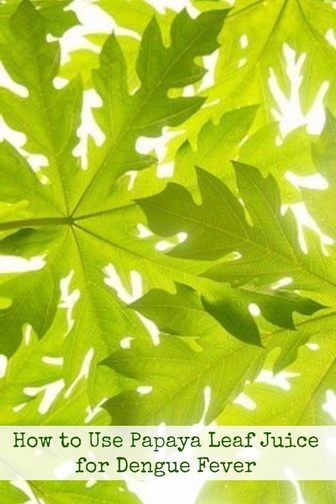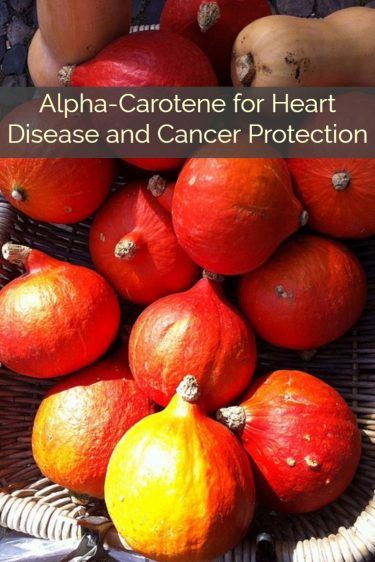Could Papaya Leaf Help Prevent Cancer? Studies and Evidence
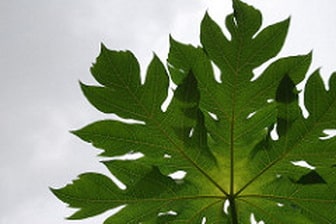 While the antioxidants, digestive enzymes and other nutritional factors in papaya can provide protection against developing cancer, recent research studies are showing papaya leaves may have potential as a treatment for those already suffering from the disease.
While the antioxidants, digestive enzymes and other nutritional factors in papaya can provide protection against developing cancer, recent research studies are showing papaya leaves may have potential as a treatment for those already suffering from the disease.
Here’s the research on using papaya leaf for cancer, a homemade remedy using the leaves and just what is in papaya that helps it fight cancerous cellular changes.
Papaya Leaf Cancer Studies
Research by Doctor Nam Dang at the University of Florida found an extract made from dried papaya leaves killed cancer cells directly and slowed the growth of tumor cells in cultures.
The leaf extract was effective against all ten different types of cancer cells tested, including liver, lung, cervix, pancreas and breast cancer cells. The anti-cancer effects were also measured to be stronger at higher doses.
It was also found that papaya leaf extract boosts the production of Th1-type cytokines that benefit your immune system.
Dr. Dang said, “Based on what I’ve seen and heard in the clinical setting, nobody who takes this extract experiences demonstratable toxicity; it seems you could take it for a long time – as long as it’s effective.” (Aqueous extract of Carica papaya leaves exhibits anti-tumor activity and immunomodulatory effects – Journal of Ethnopharmacology).
Many more studies like this one have been done on the anticancer effects of papain, the potent proteolytic enzyme found in unripe papaya and papaya leaves. These are usually animal studies but there is a consistent theme in the research of papaya enzymes inhibiting tumor growth and cancer cell proliferation.
A Homemade Cancer Treatment?
Cancer is a very serious disease and it’s important to work closely with a qualified specialist if you are diagnosed with it.
You must also inform them if you are using any complementary remedies like papaya leaf that may interfere with medications.
The papain enzyme found in unripe papaya and the leaves is known to affect blood thinning drugs so be aware that it may have other complications and side effects.
That said, there is sometimes nothing modern medicine can do for certain cancers. In this case, could papaya leaf be used as a natural cancer treatment?
 Magnesium L Threonate (Magtein) | Highly Bioavailable Form for Healthy Sleep Habits and Improved Cognitive Function + Memory | 2,000 mg, 100 Capsules, Best Value
Magnesium L Threonate (Magtein) | Highly Bioavailable Form for Healthy Sleep Habits and Improved Cognitive Function + Memory | 2,000 mg, 100 Capsules, Best Value
Papaya Leaves Cancer Tea Recipe
There have been reports online and in some news publications of people curing themselves from ‘incurable’ cancers with teas or extracts made from papaya leaves.
One case, written about in newspapers, is that of Stan Sheldon from the Gold Coast in Australia who was reported to be dying from lung cancer.
He used the liquid from papaya leaves, boiled and simmered in a pan as a homemade treatment for two months, before being tested again to find both lungs clear of any traces of cancer.
He said the disease had not reappeared several decades later and he had passed his treatment on to others, many of whom were also cured.
His papaya leaf tea recipe for cancer was as follows:
- Wash 7 medium sized papaya leaves, cut them up roughly and place them in a saucepan with 2 liters of water.
- Heat the leaves in the water until it boils and then reduce the heat right down to a mild simmer for 2 hours. By this time the liquid should be reduced by half.
- Once it is reduced, allow it to cool, remove the papaya leaves, strain the liquid and drink 50 ml of the resulting concentrated papaya leaf tea.
- Drinking another 50 ml twice more, for a total of 3 times a day before a meal, was the suggested dosage and timing for this natural cancer treatment.
This homemade papaya leaf tea can be kept in the fridge in a covered glass or ceramic container (not plastic) and should last for several days, though it was recommended to discard it if it became too cloudy.
I’ve personally made this concoction before and have to tell you that the taste is not that great (in fact, that’s a quite an understatement).
Much easier to take regularly, perhaps as a beneficial cancer preventative, is this new concentrated organic papaya leaf extract liquid that you can have in water or added to any drink. 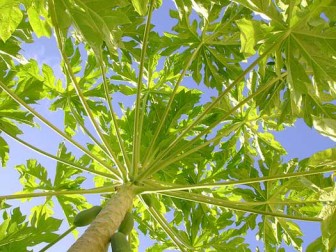
It should be noted though that I’ve found no Pubmed published human studies on using papaya leaves in this way as a cancer treatment.
Additionally, these papaya enzyme warnings and precautions would be especially applicable with both homemade papaya leaf tea and juice made from the leaves. This is particularly important for pregnant women and those on blood thinning medications.
Papaya Leaf Extract for Cancer Prevention
Many of us don’t have access to a supply of fresh papaya leaves and may just be interested in taking a preventative against cancer rather than making the treatment above.
Papaya leaf extract capsules like these ones are much easier to take regularly than the homemade tea and are highly concentrated. You could have 1 capsule a day with food as a protective supplement or use them 3 times a day for more therapeutic effects.
Dried papaya leaf tea is also available but you’d need to use significant amounts of it to come close to the potency of these extracts.
How Papaya Protects Against Cancer
There are many health benefits of papaya fruit itself, such as its rich array of antioxidants and phytonutrients that can help protect your cells against mutations and cancerous changes.
Potent digestive enzymes like papain, especially high in unripe papaya, can also help dissolve the protective layer of fibrin that surrounds cancerous tumors and prevents them from being destroyed by your immune system.
Fresh papaya leaves do seem to be the most powerful though and if I had access to them and was in a situation where I thought they could be beneficial I would definitely use them.
Rather than boiling them though, I’d actually juice them instead with a good masticating juicer like this one I have and drink it diluted with water 3 times a day.
There’s no reason to think that heating papaya leaf is the only way to use it. In fact, juicing should extract even more enzymes and phytonutrients from the leaves than making them into a tea.
Benefits of Papaya Leaves for Cancer
Papaya leaves contain significant amounts of papain and other proteolytic enzymes but scientific analysis also shows many other beneficial and biologically active compounds.
Some of the most important of these include:
- The parasite killing papaya alkaloids carpaine, pseudocarpaine and dehydrocarpaine.
- High levels of tannins, flavonols and other potent antioxidants to combat free radical damage.
- And a substance called benzyl isothiocyanate, which is currently being studied for its chemopreventive properties.
Boosts Low Blood Platelets
Fresh papaya leaf juice has also been demonstrated to be highly effective at raising low blood platelet count and boosting immunity.
Thrombocytopenia, or lowered blood platelets, is a common side effect of chemotherapy so taking papaya leaf extract or juice could help a patient to recover more quickly, though this should be discussed with a doctor first.
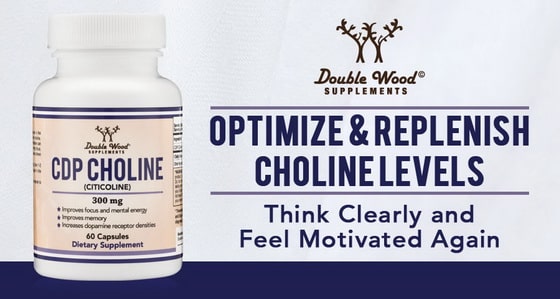 CDP Choline (Citicoline) | Pharmaceutical Grade, Made in the USA | Improves Focus, Memory, Motivation and Mental Energy | Best Value + Free Delivery
CDP Choline (Citicoline) | Pharmaceutical Grade, Made in the USA | Improves Focus, Memory, Motivation and Mental Energy | Best Value + Free Delivery
I’ve had many emails, along with the comments below, regarding the effectiveness of using papaya leaves, not just as a cancer treatment but also as a natural remedy for dengue fever due to its blood platelet enhancing properties.
I’ve written about how to use papaya leaf juice for dengue here and it has new information and a different preparation method that could also have applications for using papaya leaves for cancer as well.
The Place for Complementary Cancer Treatments
While natural remedies like this concentrated papaya leaf extract may have a beneficial role to play, nothing on this page is meant as medical advice or as a suggestion to change a current regime for anyone being treated for cancer.
With the seriousness of this disease it is so important to become informed about all the treatment options available and work closely with a healthcare professional who specializes in it. Ideally one that has an open mind to any complementary therapies that may help support your immune system.
If you are currently being treated for cancer, I truly wish you all the best in your healing.
Please know that I’ve put everything I’ve learnt about using papaya leaves for cancer into this article and cannot give individual advice that should only come from a qualified specialist.
As an Amazon Associate I may earn from qualifying purchases at no cost to the consumer | Information presented here is for educational purposes only. The content is not intended to be a substitute for professional advice. Statements made have not been evaluated by the FDA and are not intended to diagnose, cure, treat or prevent any condition. Consult your GP before making dietary changes or taking supplements.


